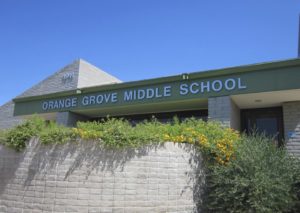Public education ‘betrays its purpose,’ says former public school teacher
A public school teacher was fired for telling parents about their child’s gender transition. Now the teacher is speaking out.
Bonnie Manchester was a teacher for 20 years before her values set her…

A public school teacher was fired for telling parents about their child’s gender transition. Now the teacher is speaking out.
Bonnie Manchester was a teacher for 20 years before her values set her at odds with the public education system.
“Teaching was a calling from a young age and (a) gift that I took seriously,” Manchester told the National Catholic Register. “I knew the value of education in a child’s life.”
In 2019, Manchester noticed sexually explicit library books at Paul R. Baird Middle School discussing oral sex, masturbation and even rape.
“One teacher had a parent accuse her of distributing pornography to her daughter,” she recalls. “Things were quickly getting uncomfortable.”
In 2020, a student came out as “genderfluid.” The parents informed the school they were aware of their child’s gender identity, were hiring counselors, and would handle the matter as a family. They asked the school to continue referring to the child by their birth name.
But school staff went behind the parents’ backs and socially transitioned the student. When Manchester informed the parents of what was happening, she was fired.
“No school personnel should be asked to withhold information about a minor child’s well-being from their parents,” said Manchester. “[B]oth parents expressed great concern for their children, along with wanting to support/parent them during a difficult time.”
The parents filed a lawsuit, alleging the school violated their preeminence over the upbringing of their child.
“They’ve been hijacked by the defendants,” said Mary McAlister, lawyer for the plaintiffs.
Massachusetts public school guidelines outline that parents or guardians of students under the age of 14 have authority over their child’s student record, including whether the student is called by a given or chosen name. The plaintiff’s daughter was not yet 14.
Nonetheless, a federal judge ruled in favor of the school in the case on Thursday.
In addition to explaining how parents can be more involved in their children’s education, Manchester also encouraged them to consider alternative forms of schooling.
“If parents are able to home-school their children, that is the most immediate way to handle curriculum/instructional practices that have crossed lines impeding both religious and fundamental parental rights,” she explains. “Public education has lost its way and betrays its purpose.”



